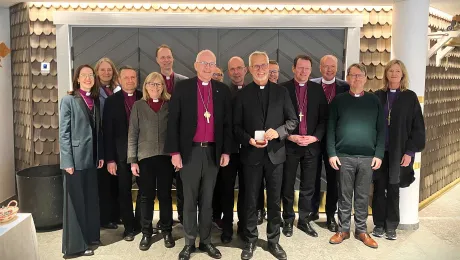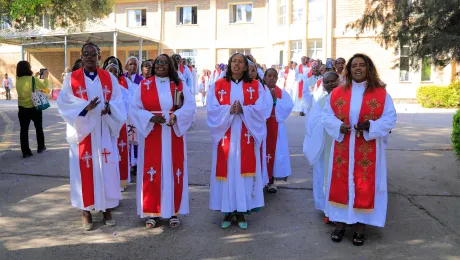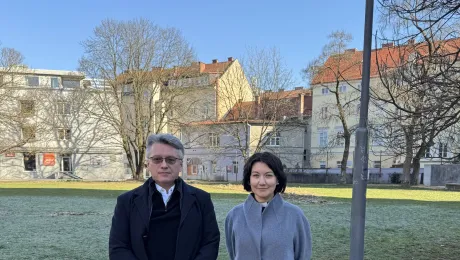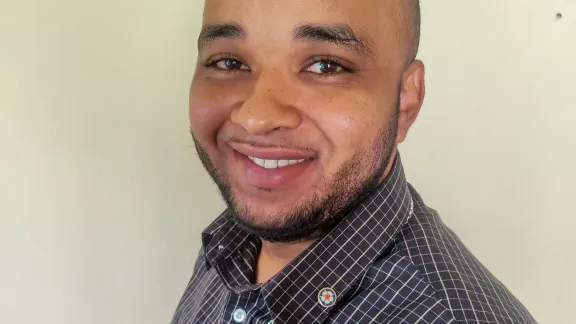
LWF scholar Rafael van Ommeren talks about being church in a multi-denominational and multi-religious setting
(LWI) – Lutheran identity was the discussion topic at the October meeting of students pursuing theological studies through scholarships awarded by The Lutheran World Federation (LWF). Mr Rafael van Ommeren, the only Lutheran student at an ecumenical college in Jamaica, talked with Lutheran World Information (LWI) about being church in his home context of Suriname, doing theology together, awareness about the work of the Holy Spirit, and continuing conversations on care for God’s creation.
Launched in May, the ‘LWF Scholars Coming Together’ meetings are an online space where students can empower and inspire each other, develop new ideas to strengthen churches, and bring a global voice into local contexts.
What are you studying, and what is your future role in the church?
I am preparing for full-time ministry to serve my home church, the Evangelical Lutheran Church in Suriname (ELKS). I am currently pursuing a master’s program in Contextual Ministry at the United Theological College of the West Indies, in Kingston, Jamaica, until May 2023. After graduating, I will return home, serve as a vicar for one year, followed by ordination in Word and sacrament. I am a member of the Maarten Luther Church, one of the ELKS congregations. I have previously served as a youth leader, lay preacher, musician and choir leader, church caretaker and director of a home for the elderly.
It was your first time to participate in the LWF scholars’ meetings: what were your impressions?
I am so grateful that I could finally be part of this platform and join in a theological conversation. As a pastor and friend shared with me: “You cannot do theology alone.” I am studying at an ecumenical college where I am currently the only Lutheran student. As much as I really like the ecumenical relationships at the college, it is also nice to share in a context with fellow Lutherans. I greatly appreciated hearing from others how they experience Lutheran identity—learn from the differences and reflect on similarities. These similarities are so enriching, because they indicate that even if we are separated by oceans and land borders, we are still very much connected.
I greatly appreciated hearing from others how they experience Lutheran identity—learn from the differences and reflect on similarities. These similarities are so enriching, because they indicate that even if we are separated by oceans and land borders, we are still very much connected
What difference does it make to be Lutheran in your context?
For me this is a question in exploration. The Lutheran church has a strong ecumenical history, and thus strong ecumenical relations with different denominations. On the other hand, this has also led us to lose a sense of what it exactly means to be Lutheran. I believe as a Lutheran church in Suriname we are on a journey to re-explore what our Lutheran identity is and what difference it makes in our context. In Suriname’s multi-denominational and multi-religious context, one of the important things we offer at the table is reassurance that we cannot work to gain our salvation. Though not exactly preached like that in other contexts, the idea of good works in order to be saved when Jesus comes back is one that finds a way in many Christian settings and leads to a lot of fear and despair.
Are there other areas in which the Lutheran church is actively engaged?
A more contemporary difference we make as a Lutheran church is our part in the conversation on caring for God’s creation. We try to make this a continuous conversation and reflect together on choices that we can make that will benefit God's creation as a whole. One of the projects that resulted from these conversations is the ELKS shopping bags project. As plastic bags, non-degradable products, are widely used in stores, we make reusable shopping bags and encourage our members and non-members to invest in such a bag instead of the plastic bags.
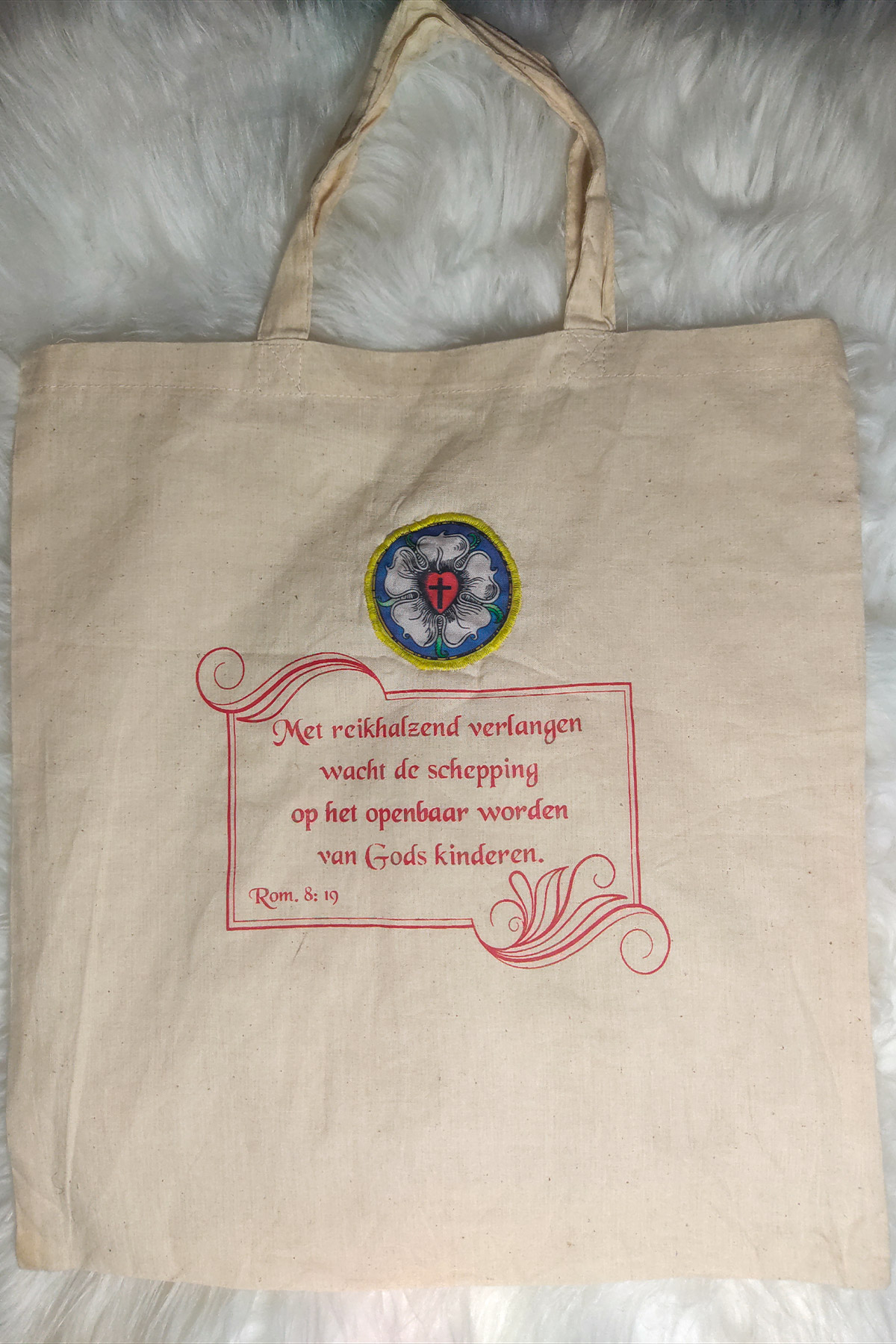
A reusable shopping bag, an idea from care for creation conversations in the Surinamese Lutheran church. Photo: ELKS
Another contribution is our part in the public discussion on gender-based violence. I believe the Christian church and other religions do not have a clear enough voice in condemning violence that happens due to one’s gender. I believe the seminars we organized on domestic violence, 15-16 October, and the tangible ways in which our gender committee works together with the non-governmental organization STICRIS (Home for Women in Crisis Situations Foundation), to provide housing for victims of domestic abuse in Suriname make a difference to being Lutheran in my context.
Any experiences related to the COVID-19 pandemic?
Yes, our Megas Diakonos project—an ambitious name for a project of a small church, which I have had the privilege to coordinate together with others. I believe it is through the Holy Spirit that we have been able to have volunteers who regularly gather food packages and other essentials that the church has been distributing to many people in need since the advent of the pandemic. The church realized that the pressures of the pandemic on our already unstable economy was very bad. The marginalized in our communities are always the ones who are the most negatively impacted by the crises. That is why we started this diaconal project, which the LWF also supported. It is a lot of work and many times, we don't have enough hands to make it work, but God provides through the Holy Spirit, and we can continue to do our part in the diaconal work of God on this earth.
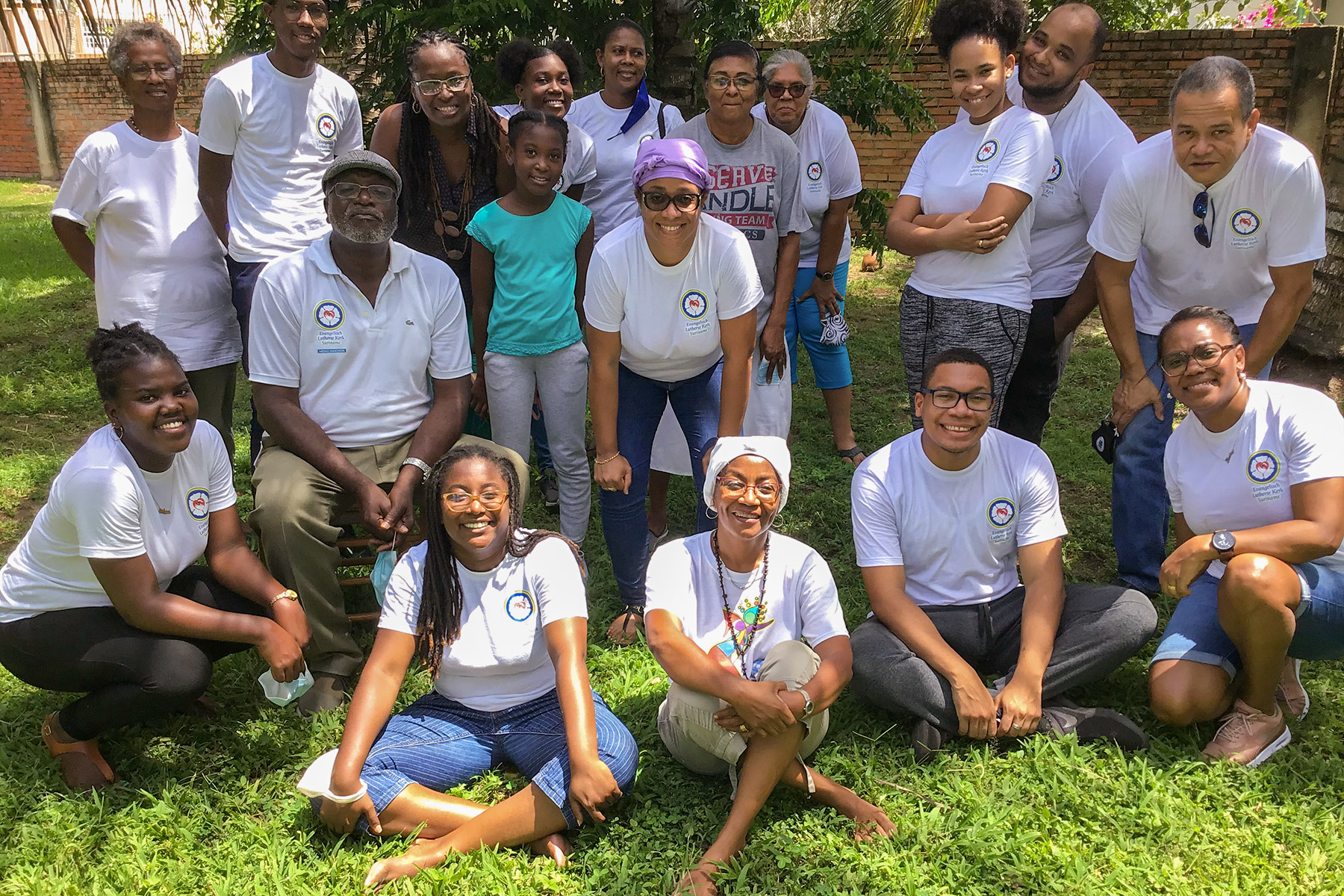
Volunteers in the Surinamese church diaconal project Megas Diakonos. This group includes ELKS President Rev. Marjory Slagtand (seated front row, second from left). Photo: ELKS
The scholars’ meeting discussed understanding of the Holy Spirit and spiritual gifts in the life of the church: your thoughts on this subject?
One of the things that resonated with me from one person in my breakout group is that in both our contexts, we do not talk very much about the Holy Spirit, other than on Pentecost Sunday. I haste to note that in Suriname, we have a strong spiritual sense of life experiences, even if our members would not explicitly identify some of them as the Holy Spirit at work.
Personally, I believe the Holy Spirit is truly at work in the Lutheran church in Suriname. We are a very small denomination in a multi-denominational country, and we have had many hard years with strong concerns about the future of the church. But, just like the Spirit of God was with us in the past and brought us to where we are now, I strongly believe that the Holy Spirit will continue to guide us throughout the hard times, and God’s church will remain and be relevant.
Did the meeting spark ideas for topics that you would like to be explored?
I absolutely believe we should continue to discuss the topic of Lutheran identity in this setting, because it is a continuous conversation that constantly needs to be contextualized. We can learn so much from our particular experiences and ideas on how to make Lutheranism relevant in our own contexts.
Another topic is that of caring for God's creation. When this is discussed with student pastors and other theologians, it increases the chances that we will continue this conversation in our ministry where we will work. We pray that these conversations will lead to more valuable actions from our churches.
By LWF/P. Mumia
The LWF accompanies its member churches in their calling to live out the gospel in service and care for the neighbor. The scholarships for theology and diakonia are a means of empowering churches for sustainable growth and development within the churches themselves and in the wider community.
Founded in 1741 by owners of sugar cane plantations and other agricultural products, the Evangelical Lutheran Church in Suriname today comprises faithful from all levels of society, a mixture of Indian, Black, Hindustani, Javanese and Chinese. It has 4,000 members and it joined the LWF in 1979.
